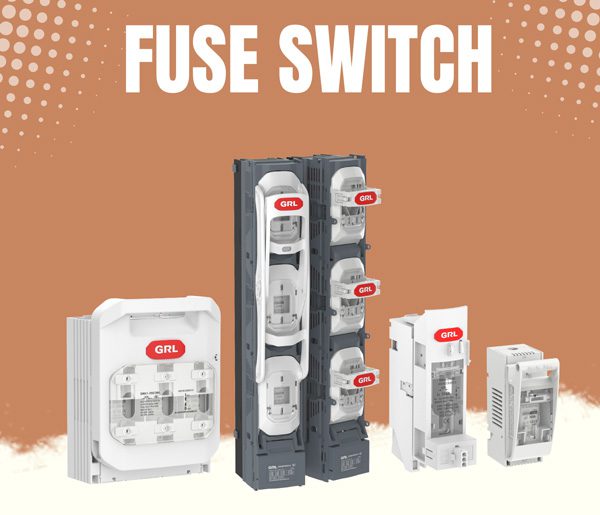In today’s increasingly complex electrical infrastructures, fused disconnect switches play a vital role in ensuring system reliability, personnel safety, and efficient circuit protection. Whether in industrial environments, renewable energy systems, or commercial distribution panels, these switches provide a dual function: safe disconnection and overcurrent protection—making them an indispensable component in modern electrical design.
Why Choose Fused Disconnect Switches for Your Electrical Systems?
What is a Fused Disconnect Switch?
Fused Disconnect Switches combine the functionalities of a disconnect switch and a fuse in one unit. The disconnect switch allows for the safe isolation of electrical circuits for maintenance or repair, while the integrated fuse protects excessive current flow. This combination ensures that operational safety and equipment protection are achieved in one device, offering significant advantages in terms of efficiency and space-saving.
Fused disconnect switches are often used in industrial, commercial, and residential electrical systems, offering protection and isolation for various types of electrical circuits. Their versatility makes them a reliable choice for power distribution, renewable energy, and manufacturing industries.

Key Features and Benefits of Fused Disconnect Switches
1. Enhanced Safety
The integrated fuse offers critical overload and short-circuit protection, preventing potential damage to electrical equipment. This makes fused disconnect switches an essential safety feature in any electrical installation.
2. Space-Saving Design
Combining the functions of both a fuse and a disconnect switch into a single unit reduces the need for multiple devices, saving valuable space in control panels and switchgear setups.
3. Reliable Performance
With robust construction and high-quality materials, fused disconnect switches are designed to perform consistently in a wide range of environments, from industrial settings to renewable energy systems.
4. Easy Installation and Maintenance
These switches are designed for straightforward installation and allow for easy maintenance, making them ideal for environments where quick and efficient service is required.
Why Choose Fused Disconnect Switches for Your Electrical Systems?
The growing complexity of electrical networks, combined with the increasing demand for reliability and safety, makes fused disconnect switches an indispensable part of modern electrical infrastructure. These devices are designed to meet the highest industry standards for safety and performance, making them a trustworthy choice for both low-voltage and high-voltage applications.
When selecting a fused disconnect switch, it is crucial to consider factors such as:
Voltage Rating: Ensure the switch is rated appropriately for your system’s voltage level.
Current Rating: Choose a switch that can handle the current demands of your equipment and electrical circuits.
Environmental Conditions: Make sure the switch is suitable for your operating environment, whether it’s exposed to extreme temperatures or corrosive elements.
By incorporating fused disconnect switches into your electrical systems, you enhance safety, streamline operations, and ensure long-term reliability.
Click to view the GRL DNH1 Fuse Switch Disconnector>>
Click to view the GRL Vertical Fuse Switch Disconnector>>
read on: DNH1 Fuse Switch Disconnector Advantages
Conclusion
Fused disconnect switches are a critical component in safeguarding electrical systems and ensuring their smooth operation. Whether used in power distribution, renewable energy, industrial applications, or residential settings, these devices provide a compact, cost-effective solution for isolating circuits while protecting sensitive equipment from overloads and short circuits. With their proven reliability and versatility, fused disconnect switches continue to play an essential role in advancing electrical safety and performance across industries.
By understanding their benefits and applications, electrical professionals can make informed decisions when selecting the right solutions for their specific needs, ensuring both safety and efficiency in their operations.
Frequently Asked Questions (FAQ)
Q1: What’s the difference between a fused and a non-fused disconnect switch?
A fused switch includes overcurrent protection, while a non-fused one only isolates the circuit.
Q2: Can fused disconnect switches be used in solar applications?
Yes. With DC ratings up to 1000V, many fused disconnects are designed for photovoltaic systems.
Q3: Are these devices UL or IEC certified?
Most premium models comply with IEC 60947-3 and UL/CE certifications, ensuring performance and safety across global markets.
Contact Us for Complete Power Protection Solutions
At GRL, we offer a comprehensive range of fused disconnect switches, high-voltage dropout fuses, busbars, and isolator switches. Our solutions are engineered to meet the demands of industrial, utility, and energy storage systems.
👉 Contact us today to explore tailored protection solutions for your electrical network.

